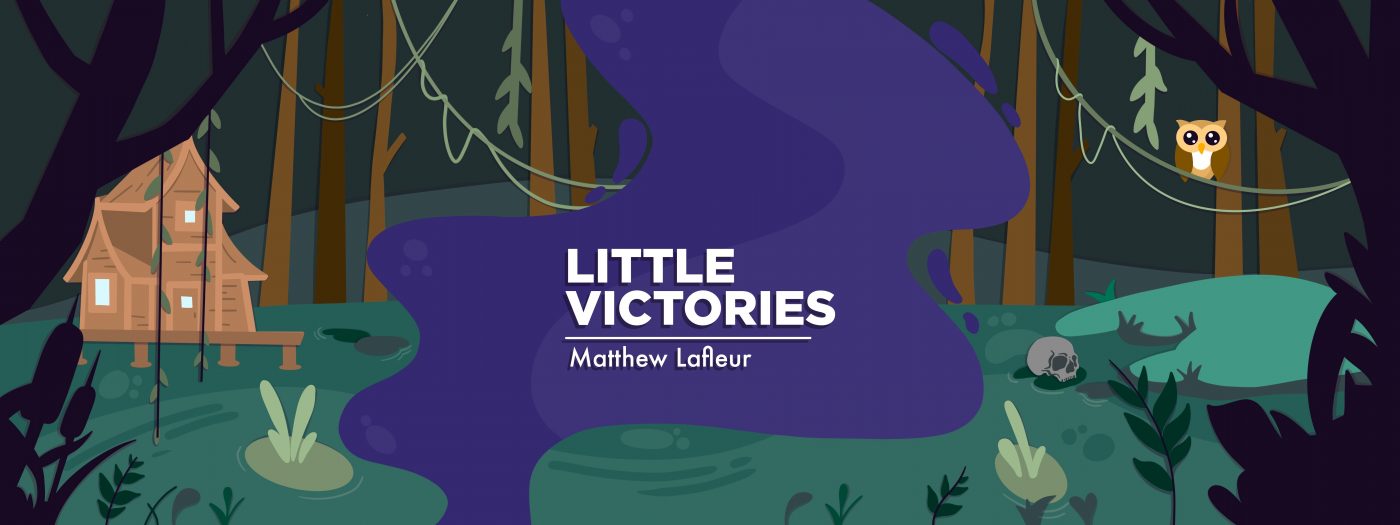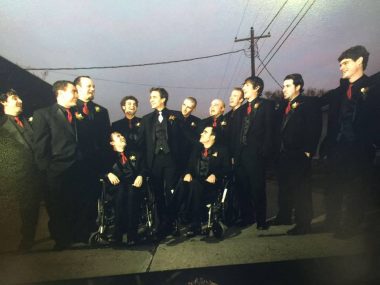Finding Hope in a Glass of Cheap Lemonade
Columnist Matt Lafleur is reunited with an old friend who taught him a couple things
Written by |

Making free “lemonade” at a restaurant is popular with penny-pinching college students, even though it may be legally dubious. Or maybe it’s popular because it’s dubious.
Here’s how it works:
Step one: Order a glass of water with lemon slices.
Step two: Mix the water, lemons, and a few packets of sugar or artificial sweetener to taste.
Step three: Enjoy!
Actually, I don’t recommend doing this. Stick to complementary glasses of water since they taste less desperate.
A symphony of emotions
The weird alchemy of janky, free “lemonade” was taught to me by my friend Loren, whom I met in my early college days. I used his method during my undergrad studies.
Loren’s past was dotted with some illicit activities, and even a stint in jail. While none of that was in my own story, I was diagnosed with Friedreich’s ataxia (FA) at age 11, and I do see some parallels in our lives since then.
By the time I was a teenager, FA had become impossible for me to ignore. In college, I begrudgingly conceded that I needed a wheelchair, because I could no longer fight FA’s progression. Thankfully, I transitioned to life in a wheelchair with grace and humility.
Just kidding. I didn’t.
Acknowledging that I had become a full-time wheelchair user was emotionally taxing, and my failing body frustrated me beyond words. Sometimes I expressed this frustration with aggravation. Other times, it was anger, sadness, worry, or hopelessness. I ran the gamut of moodiness.
On especially bad days, these emotions would crescendo into a dismal cacophony of malaise.
After one such week during my freshman year of college, I sat at a restaurant table across from Loren, stirring my weak lemon drink and feeling burdened and defeated. He listened to my whining and bellyaching, but didn’t interrupt to offer advice or tell me I wasn’t seeing the circumstances clearly.
“Yeah, that really sucks,” he said.
Simple solidarity.
I hadn’t realized how badly I had wanted to be reassured that my struggles weren’t my own fault. Or that no matter how fervently I prayed or however positive my outlook might be, the fact that FA makes me increasingly disabled objectively sucks.
Loren was able to sit with me in that grim yet honest mindset instead of trying to convince me that my situation wasn’t so bad.
I think that lesson is what Loren and I both learned at a young age: Only by facing whatever we’re up against, whether it’s a life-altering diagnosis or finding ourselves in jail, only then can we start to overcome it. Once we both better understood those feelings, we could start to move beyond them.
When life doesn’t turn out like we expect it to, choosing to see hope beyond the setbacks isn’t heroic, it’s necessary.
As I was contemplating these things, Loren ordered another glass of water and a bowl of lemons, oblivious to the effect his words had on me.
More adventures
We remained close during my college years. He and his brother Buddy took me on a cross-country road trip, and I was a groomsman in Loren’s wedding.

My friend Loren, center, is surrounded by an army of groomsmen at his wedding. Buddy and I are looking up to him — literally, never figuratively. (Courtesy of Matt Lafleur)
We didn’t see each other much after college. We both finally grew out of mixing water and lemons at restaurants, too.
After college, Loren established a nonprofit in our hometown of Opelousas, Louisiana, called “Hope for Opelousas.” HFO provides after-school programs and tutoring to local students. It reminds them that whatever obstacles stand in their way, they have the ability to prosper. In other words, how to make their own lemonade.
Loren’s pretty good at spreading hope. I know firsthand. This column, titled “Little Victories,” wouldn’t exist without him.
A few weekends ago, he brought me to a mutual friend’s wedding outside of New Orleans. During the three-hour drive, we were able to catch up with each other for the first time in years.
We picked up a quick lunch in Baton Rouge. Loren ordered a real lemonade to drink, not water with lemons, so I did the same.
Note: Friedreich’s Ataxia News is strictly a news and information website about the disease. It does not provide medical advice, diagnosis, or treatment. This content is not intended to be a substitute for professional medical advice, diagnosis, or treatment. Always seek the advice of your physician or another qualified health provider with any questions you may have regarding a medical condition. Never disregard professional medical advice or delay in seeking it because of something you have read on this website. The opinions expressed in this column are not those of Friedreich’s Ataxia News or its parent company, Bionews, and are intended to spark discussion about issues pertaining to Friedreich’s ataxia.




Leave a comment
Fill in the required fields to post. Your email address will not be published.